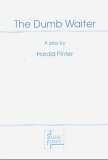by George Lakoff and Marc Johnson - the foundational text of the conceptual theory of metaphor. To L/J, metaphors are basically conceptual; metaphorical language is just an expression of underlying conceptual metaphors. This is how they define metaphor:
"The essence of metaphor is understanding and experiencing one kind of thing in terms of another" (Lakoff/Johnson 1980:5)
For example, we think of ARGUMENTS as STRUGGLES- this is revealed by the metaphors used to talk about arguments: arguments can be won, other people's arguments can be attacked or destroyed, etc. L/J claim that the systematicity with which arguments are talked about (and experienced) as struggles points to an underlying conceptual metaphor (which they refer to as ARGUMENT IS STRUGGLE).
With many other examples, they argue that a lot of our concepts are metaphorically structured in this way, i.e. they apply structures of one concept to another - usually, structures from things we have directly, often physically experienced are used to 'get a handle on' more abstract things (in the ARGUMENT IS STRUGGLE-example, we would know from physical experience how struggle works, and think of argument in the same way).
However, we don't only
think of arguments as struggles, but because we perceive and experience them in that way, we also
act accordingly - that's why their book is called "Metaphors We Live By".
For many concepts, different metaphorical concepts exist - love, for example, can be conceptualized as MADNESS, but also as a COLLABORATIVE WORK OF ART. To experience love as madness will have different consequences for our actions than to think of it as a collaborative work of art, because different aspects of love are highlighted. If love is madness, it is conceived of as something beyond our control - but if it's seen as a collaborative work of art, it requires effort from all parties concerned to reach some kind of balance.
An application of this theory: In a really impressing article, Lakoff analyzes the conceptual metaphorical system used by the first Bush administration to justify the first Gulf War - like depicting Iraq as a villain raping innocent victim Kuwait, and the U.S. as the hero coming to save the victim and punish the villain. Everything not fitting this picture, like Kuwait's not at all democratical monarchy and former behaviour towards Iraq, was hidden because the conflict was conceptualized in these terms. You can find the article at
http://philosophy.uoregon.edu/metaphor/lakoff-l.htm (this is also really depressing, because it did nothing to stop the war - and so much of this was re-used for the second Gulf War :-(. Still, a very worthwhile read if ever you get the time!)
(I hope this was clear enough - I tried to be brief, but maybe that was a little too brief?)
